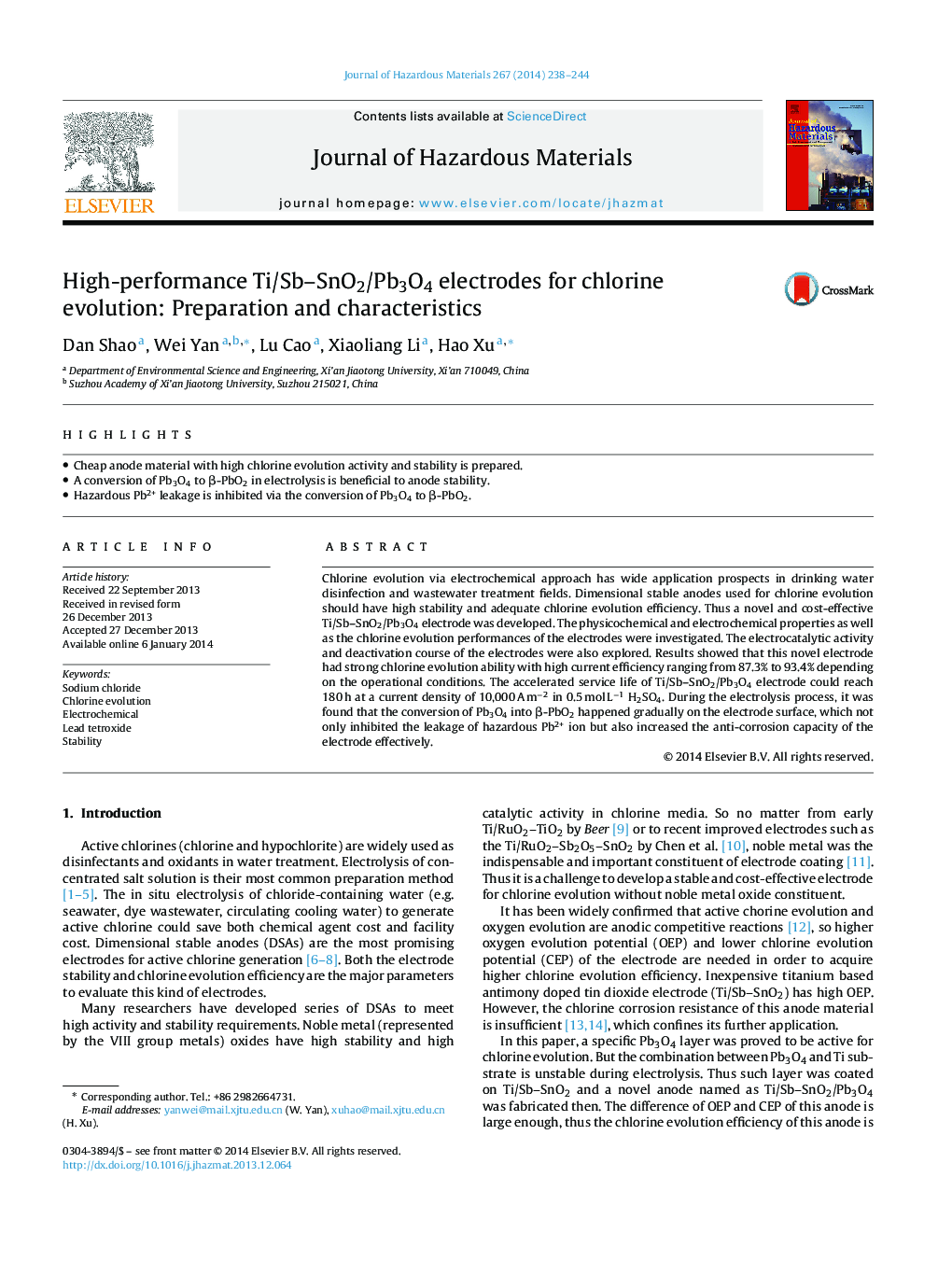| Article ID | Journal | Published Year | Pages | File Type |
|---|---|---|---|---|
| 576925 | Journal of Hazardous Materials | 2014 | 7 Pages |
Abstract
Chlorine evolution via electrochemical approach has wide application prospects in drinking water disinfection and wastewater treatment fields. Dimensional stable anodes used for chlorine evolution should have high stability and adequate chlorine evolution efficiency. Thus a novel and cost-effective Ti/Sb-SnO2/Pb3O4 electrode was developed. The physicochemical and electrochemical properties as well as the chlorine evolution performances of the electrodes were investigated. The electrocatalytic activity and deactivation course of the electrodes were also explored. Results showed that this novel electrode had strong chlorine evolution ability with high current efficiency ranging from 87.3% to 93.4% depending on the operational conditions. The accelerated service life of Ti/Sb-SnO2/Pb3O4 electrode could reach 180 h at a current density of 10,000 A mâ2 in 0.5 mol Lâ1 H2SO4. During the electrolysis process, it was found that the conversion of Pb3O4 into β-PbO2 happened gradually on the electrode surface, which not only inhibited the leakage of hazardous Pb2+ ion but also increased the anti-corrosion capacity of the electrode effectively.
Related Topics
Physical Sciences and Engineering
Chemical Engineering
Chemical Health and Safety
Authors
Dan Shao, Wei Yan, Lu Cao, Xiaoliang Li, Hao Xu,
